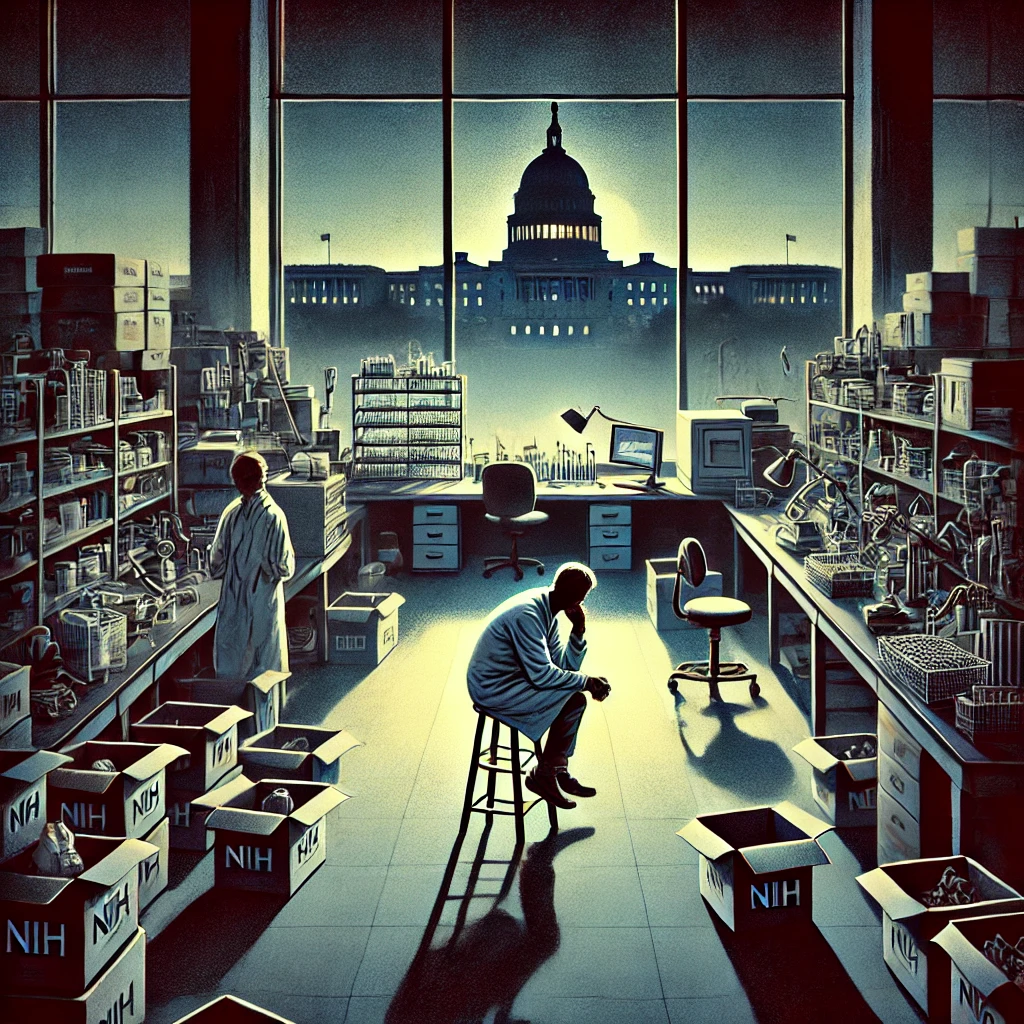
America’s greatest asset has never been its wealth—it’s been its curiosity. NIH cuts don’t just slash budgets; they strangle the future.
In the cold, sterile corridors of power, decisions are often made with the precision of a scalpel and the indifference of a ledger. The National Institutes of Health (NIH), that towering institution meant to be the steward of the nation’s biomedical promise, has announced immediate cuts—billions slashed from the lifeblood of research by altering Indirect Cost Rates. It is, on paper, a matter of fiscal policy. In reality, it is a quiet betrayal.
For this is how empires crumble—not with grand gestures, but with the small, incremental decisions that hollow out their foundations while the walls still stand. The laboratories that will shutter their doors, the researchers who will pack their notes into boxes and fade into other careers, the projects abandoned mid-discovery—all of it is invisible to the untrained eye. But beneath the surface, rot sets in.
What is knowledge, after all, in a nation that treats it as a luxury?
Consider the implications. These cuts do not merely trim fat; they carve into the very muscle of progress—cancer research left incomplete, studies on heart disease stalled, breakthroughs that will never be born. And while America tightens its purse strings, China builds. Not metaphorically, but literally—erecting research centers, pouring resources into science, technology, education, and the relentless pursuit of discovery. For China, the future is infrastructure. For America, it is an afterthought.
The calculus of this policy is simple, yet devastating. A dollar saved today costs a life tomorrow. The cancer patient whose treatment could have emerged from a study that no longer exists; the child whose rare disease remains untreatable because the grant was never renewed. But it’s not just lives—it’s leadership, sovereignty, identity. A nation that refuses to invest in knowledge is not frugal; it is forfeiting its place in history.
This is not a new story, of course. America has always had a complicated relationship with intellect. It celebrates the lone genius, the myth of the self-made innovator, while starving the ecosystems that make such genius possible. Public schools crumble while defense budgets swell. Universities beg for scraps while corporations reap the benefits of taxpayer-funded research. We valorize the outcome and ignore the process.
And process is everything.
China understands this. Its strategy is not predicated on immediate returns but on the slow, deliberate cultivation of capacity. Every lab funded, every student supported, every discovery nurtured—they are investments not in the present, but in a future where knowledge is power, and power is security. America, by contrast, seems determined to eat its seed corn, starving the very fields it will one day need to harvest.
The irony is unbearable. The same politicians who wave the flag of American exceptionalism are the architects of its decline, dismantling the engines of innovation while preaching about greatness. But greatness is not a birthright. It is earned—and it can be lost.
In the end, this isn’t just about budget lines or policy briefs. It’s about a fundamental question: What kind of country does America want to be? One that hoards its wealth and impoverishes its mind, or one that understands true wealth is found in the pursuit of knowledge, the courage to explore the unknown, the audacity to believe in a future better than the present?
The NIH cuts are more than a mistake. They are a confession—a nation admitting, perhaps without realizing it, that it no longer knows how to dream.